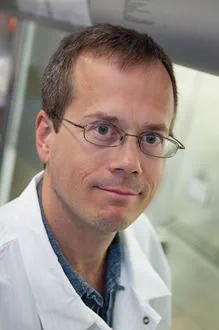Events
May 13, 2021
Seminar (2021-05-13)
Date: Thursday, 13 May 2021
Time: 4:00 p.m.
Zoom Link: https://hku.zoom.us/meeting/register/tJUpcO-qrTMuG9zH88rfSgG0bG3d06iuNbc8
Meeting ID: 914 7623 8418
Password: 204439
Speaker: Professor James Wells, Director for Research, Division of Endocrinology, Chief Scientific Office, Center for Stem Cell and Organoid Medicine (CuSTOM), UC Department of Pediatrics, USA
Title: Human pluripotent stem cell-derived gastrointestinal organoids as new models to study human organ development, digestive diseases and diabetes
Biography

Dr. Wells is an endowed professor of Pediatrics at the Cincinnati Children’s Hospital Medical Center. He is in the Division of Developmental Biology, is the Director for Basic Research in the Division of Endocrinology and was appointed Chief Scientific Officer of the Center for Stem Cell and Organoid Medicine.
Dr. Wells’ research focuses on the processes by which gastrointestinal and endocrine organs form in the developing embryo and how they maintain systemic metabolic homeostasis postnatally. His lab pioneered approaches to generate gastrointestinal (GI) tissue organoids of the stomach, intestine, and colon from human pluripotent stem cells, which are being used to model human development and diseases and to generate functional tissues for transplantation.
Abstract
Successful efforts to direct the differentiation of human embryonic and induced pluripotent stem cells (PSCs) into specific organ cell types in vitro have largely been guided by studies of embryonic organ development. We can now differentiate human PSCs into a myriad of gastrointestinal organoids including esophageal, gastric fundus, gastric antrum, small intestinal and colonic organoids. GI organoids have structural and functional properties of their representative organ including secretion of digestive enzymes, acid, mucous and hormones and an ability to absorb nutrients. We are developing next generation organoids with increased cellular complexity including functionally innervated smooth muscle capable of peristalsis and functional immune cells capable of triggering an inflammatory cascade in response to pathogenic bacteria. We have used PSC-derived organoids to identify the underlying mechanisms behind birth defects including Hirschsprung’s disease and esophageal atresia and as diagnostic tools to identify new pathologies in patients with complex GI diseases.
ALL ARE WELCOME
Should you have any enquiries, please feel free to contact Miss River Wong at 3917 9216.

